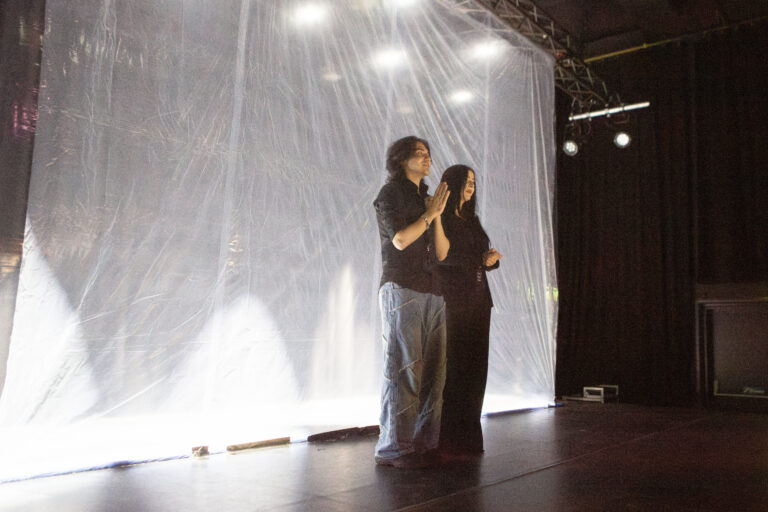Virtual Artists
How will artists perform in the future? What new possibilities will emerge, and which technologies will be used? How will audiences experience concerts — virtually, in hybrid form, or even fully personalized for each individual? And what role will venues play in this future?
Digital and hybrid spaces
The Japanese virtual superstar Hatsune Miku easily sells out entire stadiums, Travis Scott performed inside the video game Fortnite, and the holographic members of ABBA are still energetically touring the world. Pop artists are increasingly moving into digital and hybrid spaces. This opens up many new possibilities for both artists and venues, as it allows the powerful elements of both live concerts and digital environments to be combined.
Two Prototypes
In this project SPOT Groningen explored what digital forms of performing arts might look like, what is required for their execution, and what the potential impact of such hybrid environments could be. Two student teams from the Hanze programme Creative Media and Game Technologies took on this challenge, in collaboration with CrossWise. The first team developed a virtual artist who performs in a digital environment, experienced through VR technology. The second team created DV8, a holographic band capable of performing on a physical stage for a live audience.
Presentation at De Oosterpoort
The results were presented on Monday 2 June at De Oosterpoort. Visitors were given a unique glimpse into what the future of the performing arts may look like—digital, hybrid, and groundbreaking. Wandering what this looked like? Check out the video below!
Part of the European METAVENUES Project
This production is part of METAVENUES, a European project in which SPOT Groningen, ECHO (European Concert Hall Organisation), and Komodal explore how new technologies like AI, the Internet of Things, and Extended Reality can shape the future of performing arts venues. Studio Immersief brings its expertise in immersive storytelling and cutting-edge technology to the table. METAVENUES is funded by the European Union through Creative Europe.
